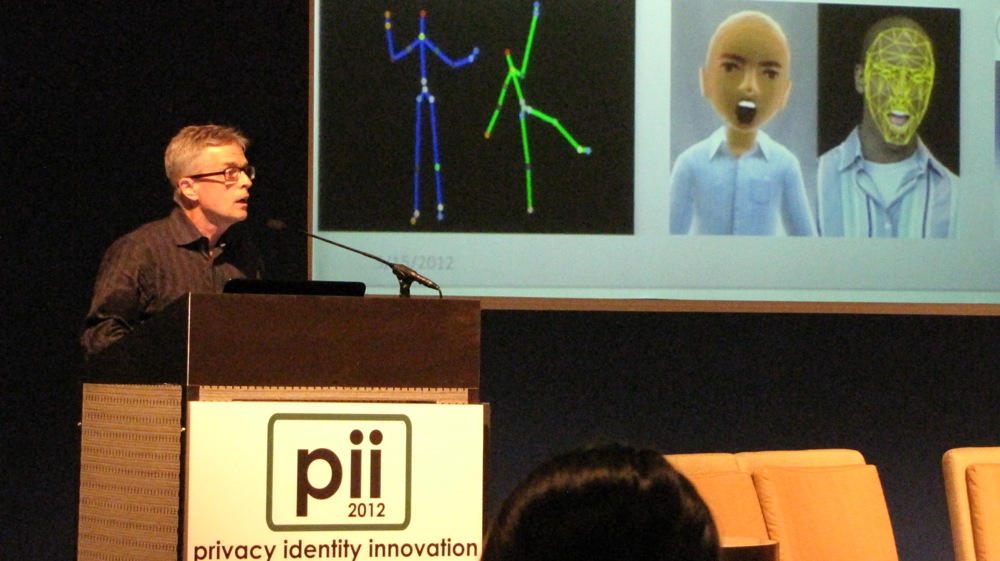
A woman walks into a store, and a computer recognizes her, welcomes her by name, compliments her on the weight she’s lost, and points out that the store has lots of good deals in her new size — which happens to be two sizes larger than she had been telling her friends, who are with her on this particular shopping trip.
 Is this the future of technology? Let’s hope not.
Is this the future of technology? Let’s hope not.
That was one of the hypothetical nightmare scenarios — an example of a situation to avoid — described by Lyn Watts, a marketing and data policy privacy manager at Microsoft, during a cautionary session this afternoon at the Privacy Identity Innovation conference in Seattle.
The topic was biometric-aware advertising, which will become more common as sensor-based devices gain the ability to recognize the people using them.
Watts talked about the promise of the technology, but also the potential privacy pitfalls. His examples centered around Microsoft’s Kinect sensor, which is expanding its potential applications into more commercial settings as it moves beyond the Xbox 360 game console to Windows PCs.
So how should companies making biometric-enabled Kinect apps approach the issue? Here’s an excerpt from his remarks …
From a privacy professional’s point of view, there’s a big mountain to climb here. Biometric data, as we know from our customers, is something that is seen as really exciting. And also there’s a little bit of trepidation. I think Xbox did a really good job of rolling out Kinect and being very up front about the privacy implications and giving customers control over those implications.
Those are the sorts of things that the privacy managers for these companies are going to have to think about, too. Boy, be up front about disclosure, about exactly what the data is going to be used for.
Get clear, clear consent. In a lot of cases, I think it’s going to be opt-in, check-the-checkbox type of consent. There’s things that you can do that aren’t necessarily the right things, and I think that’s going to be foremost on the minds of a lot of the privacy managers that are going to work in this space.
We’ll have more from PII2012 as the event continues. Tomorrow at the conference I’m interviewing Del Harvey, the director of trust and safety for Twitter, and we’ll post highlights afterward.



